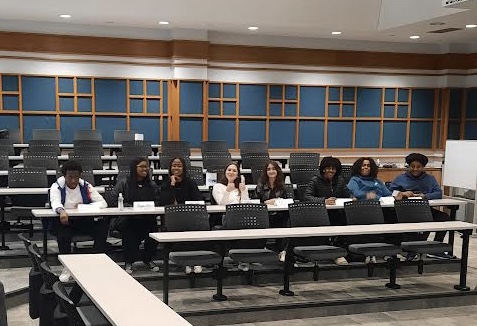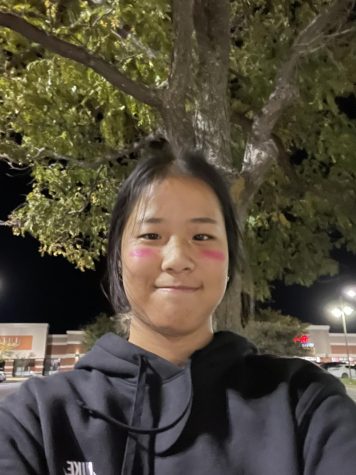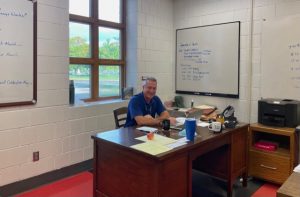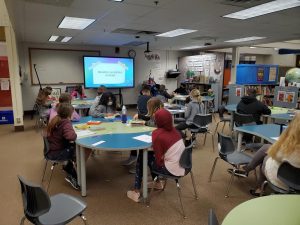Ethnic and Cultural Studies holds student led panels about different ethnic groups

On March 31, there was a Muslim student panel held in the Main forum. Other classes along with the ECS class watched and participated.
Ethnic and Cultural studies, otherwise known as ECS, is an elective social science. The class takes another approach to understand the ethnic groups of our history than the normal social studies class. With the freedom of being an elective course, teacher Claire Henning allows students to express their heritage/culture in many different ways. One of those ways is student-led panels.
These panels are open to whoever hears about them and would like to participate or listen. Many different panels have been held this year already, such as the Military, NATO, Muslim, Pride and more. The class also tries to hold panels relating to the month, such as Black Heritage Month in February, Asian-Pacific American Heritage Month in May and Hispanic Heritage Month in September and October. Seniors Diego Davila and Mac Anderson have sat on the Hispanic Heritage panel and have only found positive outcomes from their experiences.
“Being able to tell people about my heritage and what experiences that I’ve had being in this country and how it’s different to where I’m from was overall, just a good experience,” Davila said.
Public speaking can be hard. One of the many reasons these panels are held is to grow people’s confidence in public speaking.
“I would say if it fits inside your comfort zone, 100% try to do it, but if not, maybe still try to push towards getting comfortable with speaking because it’s a very important part of how our school operates,” Anderson said. Public speaking is not only beneficial in high school but also in everything after that. It is a skill that has to be learned, but once attained it could help in so many situations. Public speaking revolves around all public interactions and how our society works. Relaying information and understanding information that is being heard become easier and communication overall.
An argument Henning brought up was the difference between a singular speaker compared to a panel. It can be a misconception that speakers can be incorrect when speaking for the whole group, but if correctly informed and research-based they can be right. But the downside is completely perspective. One experience can alter an opinion, which is why most prefer larger group speakings because of all the different experiences that can be shared.
“I think speakers are great, but I feel like with a panel of your peers, you can connect to that easier,” Anderson said. He went on to talk about how being able to connect with people your own age is even more beneficial.
“I think panels allow more experiences to be shared and provide a deeper discussion,” Said Justin Lopez, Stillwater alumni, and TA in ECS class. These panels can be used as conversation starters with a classmate you’ve never talked to before, but saw their panel and learned more about them. These types of panels can spark relationships that were never before founded but now have more relatability.
At SAHS, minority enrollment is around 20%. With that low number, it can be hard to know about other heritages and their experiences. These panels are a small step in the right direction to having a more openly understanding and educated student body.
“Having these panels is a great way to let people learn about things they might not otherwise come across in the everyday minutiae of their lives,” Lopez said. These panels allow students comfort in asking questions that might be perceived as weird or nosey any other day. The main importance of the panels is that people walk out of them more educated than they were walking in.
In most situations, with a larger listener base, more can be achieved. With the hopes of having the panels reach a bigger audience, Anderson talks about an optimistic future for these panels to become school-wide. If the panels were to grow in numbers even within the school, it would have such a bigger impact. In an ideal world, the speakers would feel more valuable and the audience could relate more, and connect easier. Although, there is always something to say about the intimacy of the current settings.
“I feel like if it was a larger group, it wouldn’t be as open,” Davila said.
The main goal of the panels is to inform the audience, whether it be more panels or a higher number of listeners, the students are always working towards informing the student body.

My name is Sadie Bettendorf. I am a junior and my position in the Newspaper is a Business Editor and Online Editor. Some things that I do include track,...








